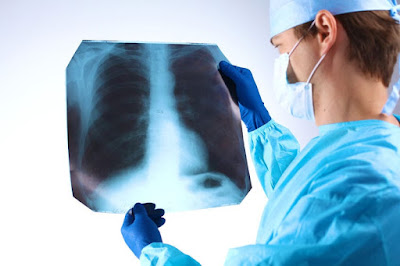Memory Loss: Causes, Symptoms, and Remedies
This time KRIMS Hospitals, Nagpur is here to provide information about one of the most common diseases which is memory loss. To learn about what is memory loss and how to deal with this disease, what are the causes and symptoms?
Everyone suffers a loss of memory periodically. Mild memory loss tends to increase with age and is usually no reason for concern. But the gradual loss of memory due to diseases such as Alzheimer's disease may be serious.
What is the loss of memory?
Our memory is where we collect, preserve, and retrieve information. Memory failure will happen because there is any damage to the portion of our brain that conducts these tasks. Memory loss is a symptom of which a person develops an uncommon degree of forgetfulness and incapacity in their life to remember past events. This is normally a result of brain trauma that may have been caused by sickness, disease, or severe emotional stress. The lack of memory may be temporary or permanent. Not all problems in memory mean dementia or Alzheimer's. Memory deficiency may be caused by multiple medical problems, and the root cause could be something clear and treatable, such as anxiety or depression or even a drug.
If memory loss tends to affect your everyday life, or if it's followed by other symptoms, talk to your doctor. Your doctor will help decide the cause by noting the sort of memory loss you have.
When diagnosed early, certain forms of memory loss are treatable. Any conditions will worsen and make recovery worse if not diagnosed early.
Types of memory loss:
- Anterograde is the inability to learn new memories.
- Retrograde is forgetting old memories.
- Complete or partial & sudden or long-term loss of memory.
- Memory loss itself is also known as amnesiac syndrome.
- Mild lack of memory is considered mild cognitive impairment
- Dementia is a big stroke in the brain, where memory can be complicated for a person.
- Alzheimer’s is a failure of memory and disturbance in mental functions.
Causes for Memory loss:
Memory loss can be caused by several causes. These considerations include:
- Mild lack of memory is considered mild cognitive impairment
- Dementia is a big stroke in the brain, where memory can be complicated for a person.
- Alzheimer’s is a failure of memory and disturbance in mental functions.
Causes for Memory loss:
Memory loss can be caused by several causes. These considerations include:
- Deficiency in vitamin B-12
- Starvation of sleep
- Drug or tobacco use and certain prescription medications
- Anesthesia from previous procedures
- Cancer therapies, such as chemotherapy, radiation, or transplantation of the bone marrow.
- Injury to the brain or a concussion
- The shortage of blood in the brain
Other forms of convulsions
- Tumor or cancer of the brain
- Brain or coronary bypass surgery
- Depression, bipolar disorder, schizophrenia, and depressive disorder are psychiatric disorders including.
- Psychological trauma
- Dysfunctioning of the thyroid
- Therapy with electro convulsions
- Temporary Ischemic Attack (TIA)
- Neurodegenerative disorders such as Huntington's disease, Parkinson's disease, or multiple sclerosis (MS).
- Drug or tobacco use and certain prescription medications
- Anesthesia from previous procedures
- Cancer therapies, such as chemotherapy, radiation, or transplantation of the bone marrow.
- Injury to the brain or a concussion
- The shortage of blood in the brain
Other forms of convulsions
- Tumor or cancer of the brain
- Brain or coronary bypass surgery
- Depression, bipolar disorder, schizophrenia, and depressive disorder are psychiatric disorders including.
- Psychological trauma
- Dysfunctioning of the thyroid
- Therapy with electro convulsions
- Temporary Ischemic Attack (TIA)
- Neurodegenerative disorders such as Huntington's disease, Parkinson's disease, or multiple sclerosis (MS).
- Migraine Disorder
Memory loss symptoms:
- Loss of memory which interrupts daily life
- Challenges in the planning or settlement of conflicts
- Difficulty performing familiar activities
- Confusion of time or location
- Problems with knowing digital representations and perceptual experiences
- New difficulties with communicating or composing in words
- Misplacing stuff and lacking the capacity to retrace measures
- Judgment decreased or weak
- Withdrawal from social events or jobs
- Mood and behavior changes
Memory loss treatment and remedies:
Amnesia resolves itself without medication in most cases. However, care could be required if an underlying physical or psychiatric condition is present.
Memory loss symptoms:
- Loss of memory which interrupts daily life
- Challenges in the planning or settlement of conflicts
- Difficulty performing familiar activities
- Confusion of time or location
- Problems with knowing digital representations and perceptual experiences
- New difficulties with communicating or composing in words
- Misplacing stuff and lacking the capacity to retrace measures
- Judgment decreased or weak
- Withdrawal from social events or jobs
- Mood and behavior changes
Memory loss treatment and remedies:
Amnesia resolves itself without medication in most cases. However, care could be required if an underlying physical or psychiatric condition is present.
Any patients may be assisted by psychotherapy. Hypnosis can be an effective way of remembering experiences that have been lost.
Family involvement is key. It can help with images, tastes, and music.
In order to better correct for the memory problem, therapy also requires approaches and techniques.
This includes:
- Acting with an occupational psychologist to retrieve new information to replace lost memory or to use old memories as a reference for gathering new information.
- Learning ways to organize information, to make it easy to store them.
- Using interactive devices, such as tablets, to help with daily tasks and to remind patients about important events, whether to take medications and so on. Providing a contact list with pictures of faces might be helpful.
Currently, there are no treatments to regain memories damaged due to amnesia.
Malnutrition or Wernicke-Korsakoff syndrome can include a lack of memory due to a deficit of thiamine (Vitamin B1), but tailored nutrition can benefit.
- Acting with an occupational psychologist to retrieve new information to replace lost memory or to use old memories as a reference for gathering new information.
- Learning ways to organize information, to make it easy to store them.
- Using interactive devices, such as tablets, to help with daily tasks and to remind patients about important events, whether to take medications and so on. Providing a contact list with pictures of faces might be helpful.
Currently, there are no treatments to regain memories damaged due to amnesia.
Malnutrition or Wernicke-Korsakoff syndrome can include a lack of memory due to a deficit of thiamine (Vitamin B1), but tailored nutrition can benefit.




Comments
Post a Comment